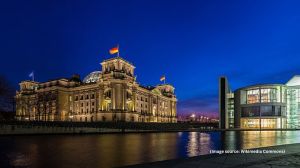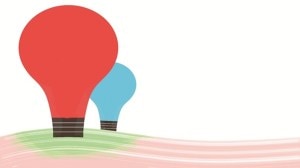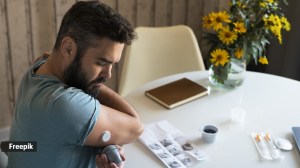Bilal Ahmad Kaloo: ‘I hope for a classroom full of students’
I am a teacher. All I wanted was to return to the classroom to teach them the philosophy of hope.
 Bilal Ahmad Kaloo (Credit: Bashaarat Masood)
Bilal Ahmad Kaloo (Credit: Bashaarat Masood) Bilal Ahmad Kaloo, 39
Coordinator, Department of Teacher Education
University of Kashmir, North Campus
Baramulla, Kashmir
On a quiet summer morning three years ago, I felt a little dizzy with an occasional bout of cough. On a normal day, I would pop a tablet and relax in the company of books. But it was the summer of 2020 and every bout of cough brought with itself long periods of anxiety. COVID had arrived, and only a day before, a neighbour had died of it. He was literally thrown into a ditch without a funeral bath. I didn’t want to die of COVID.
Over the next few days, I popped a strip of antibiotics, hoping it was not COVID. When it didn’t get better, I took the unwilling steps towards the COVID testing facility.
A few days later, I got a call from an unknown number and, in a few minutes, an ambulance was at the gate of my house. I was ‘positive’ — a word that sent my thoughts swirling from Wuhan to Italy to the plight of my neighbour.
It was the time when COVID-positive patients were ‘untouchables’. I was thrown into an empty classroom of a private school that was turned into an isolation facility — no television, no entertainment and no books. For a fortnight, I stared at the bare walls of the big room — all alone.
For a teacher, a classroom is the loveliest place. But that day, I learnt that a classroom without students is the ugliest place. Here, the feelings of emptiness were amplified. I badly missed my students. The schools and colleges in Kashmir had been shut much before the pandemic gripped the world and I was away from my students for almost a year. I wanted to return to the classroom, full of young boys and girls brimming with hope and optimism.
I am a teacher. All I wanted was to return to the classroom to teach them the philosophy of hope. It was a time when I needed hope, my students needed hope.
I was released from the confines of the empty classroom after two weeks but the return to the university, to the classroom full of students, was still two years away.
I returned to the classroom finally but the mob of memories and emotions from the pandemic still weighed heavy on me. With the new year here, I want to shun the memories of the pandemic, its burden of hopelessness and helplessness.
I want to look at the new year with a new hope — a year that cements the human values of love, warmth and empathy, a year where classrooms are not empty, a year that marks the beginning of the end of the pandemic.
What I want to leave behind from the past two years
Memories of the pandemic and the feelings of helplessness
What I am looking forward to in 2023
I hope for a year full of love, warmth and empathy, and classrooms full of students
Photos



- 01
- 02
- 03
- 04
- 05




























